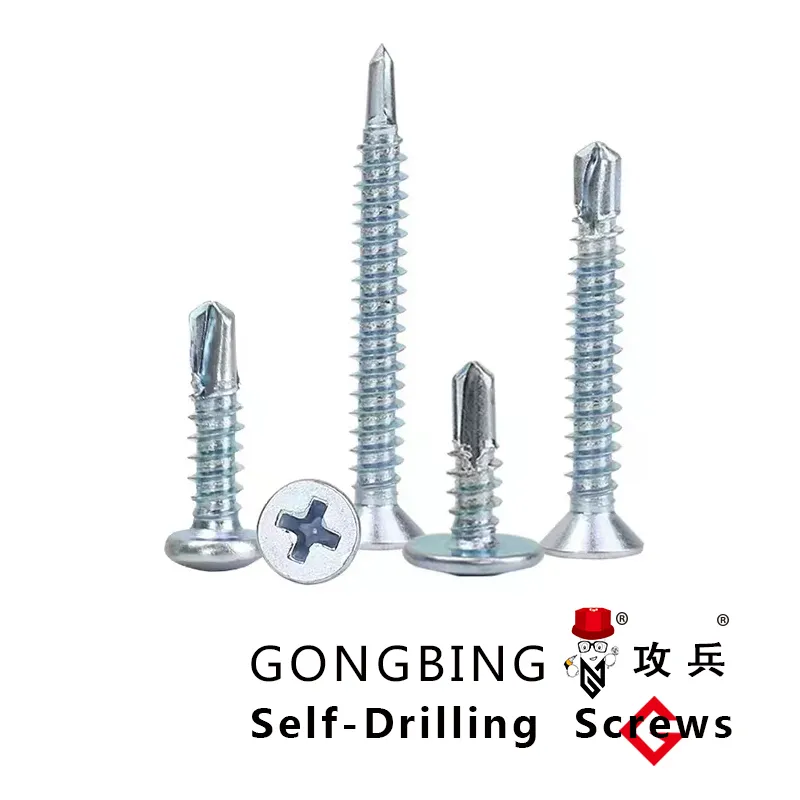Using Self-Drilling Screws for Effective Wood Construction and Assembly Techniques
The Versatility and Efficiency of Self-Drilling Screws in Wood
Self-drilling screws have revolutionized the way we approach woodworking and construction projects. As their name suggests, these screws eliminate the need for pre-drilling, offering a range of advantages that enhance both efficiency and performance in woodworking applications. Whether you are a DIY enthusiast or a seasoned professional, understanding the benefits and applications of self-drilling screws can significantly improve the quality of your projects.
What Are Self-Drilling Screws?
Self-drilling screws, also known as self-tapping screws, are specialized fasteners designed with a unique drill bit tip. This tip allows the screw to create its own hole as it penetrates the material, which is particularly beneficial when working with wood. Unlike traditional screws that require a pilot hole to prevent the wood from splitting, self-drilling screws streamline the process by eliminating this extra step. This not only saves time but also reduces the potential for errors during installation.
Advantages of Self-Drilling Screws in Wood
1. Time Savings One of the most significant advantages of self-drilling screws is the reduction of installation time. By removing the need for pre-drilling, contractors and DIYers can complete projects more quickly. This is particularly valuable in large-scale applications, where every minute counts.
2. Reduced Splitting Self-drilling screws are designed to limit the risk of wood splitting. The unique design of the screw's tip and threads helps to ensure that the screw drives into the wood smoothly, creating minimal stress on the material. This feature is especially important when working with hardwoods, which are more prone to splitting.
self drilling screws in wood

3. Increased Holding Power The threads on self-drilling screws are engineered to provide superior grip in wood. This design allows for better holding power compared to traditional screws, ensuring that joints remain secure over time. This is crucial in applications where strength is paramount, such as in the construction of furniture or load-bearing structures.
4. Versatility Self-drilling screws come in various sizes and materials, making them suitable for a wide range of applications. They can be used in everything from cabinetry and woodworking to decking and outdoor projects. Additionally, they can accommodate different finishes, ensuring that they blend seamlessly into the overall design of the project.
5. Ease of Use For those who may be new to woodworking, self-drilling screws are incredibly user-friendly. Their design simplifies the installation process, making it accessible to those without extensive experience or specialized tools. This accessibility encourages more people to take on woodworking projects with confidence.
Applications in Woodworking
Self-drilling screws can be used in a variety of woodworking situations. They are ideal for assembling furniture, attaching hardware, and constructing wooden frames. Furthermore, they excel in outdoor applications, such as building decks, fences, and other structures exposed to the elements, thanks to their ability to resist corrosion when made from stainless steel or coated materials.
Conclusion
In summary, self-drilling screws represent a game-changer in woodworking, offering efficiency, strength, and ease of use. By understanding their advantages and applications, woodworkers can enhance their projects' quality and durability. As the demand for faster and more reliable construction solutions continues to grow, self-drilling screws will undoubtedly remain a popular choice. Embracing this innovative fastening technology is a step toward achieving superior results in woodworking endeavors, redefining what is possible with each installation. Whether you are a hobbyist or a professional, incorporating self-drilling screws into your toolkit is a wise investment in the future of your woodworking projects.
-
Weatherproof Plastic Expansion Anchors for OutdoorNewsJun.06,2025
-
Sustainability in the Supply Chain: Eco-Friendly TEK Screws ProductionNewsJun.06,2025
-
Load-Bearing Capacity of External Insulation FixingsNewsJun.06,2025
-
Double Head Bolts: Enhancing Efficiency in Industrial MachineryNewsJun.06,2025
-
Corrosion Resistance in Chipboard Screws: Coatings for Wholesale DurabilityNewsJun.06,2025
-
Butterfly Toggle Bolts : Enhancing Structural ResilienceNewsJun.06,2025
